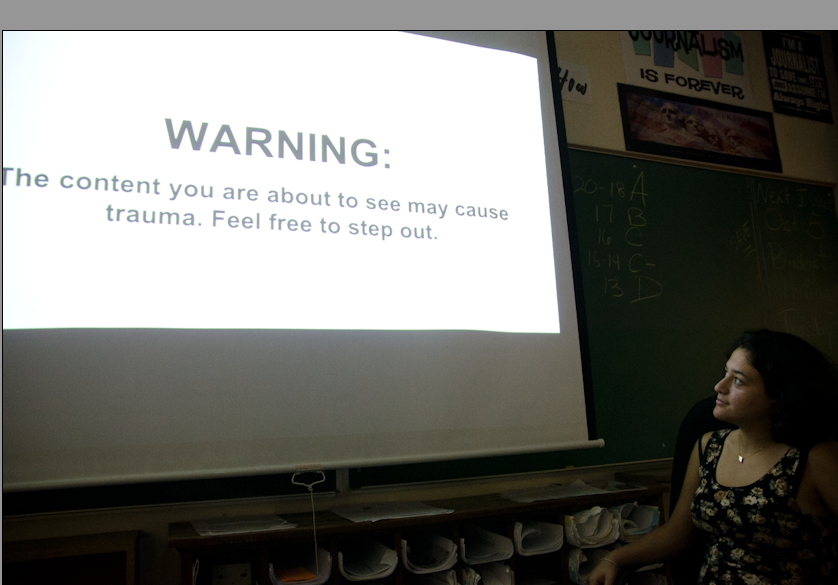Time to take a stance on the trigger warning debate
September 16, 2016
Controversy over trigger warnings has lit up campuses nationwide, but not at ETHS.
“I can’t rationalize why a school wouldn’t have trigger warnings,” Principal Dr. Marcus Campbell said. “The policy change at University of Chicago was insensitive.”
Dr. Campbell is referring to the recent rollback of trigger warnings at the University of Chicago. On August 24th, a statement was issued to the University of Chicago class of 2020, notifying the students that there will be no alerts to shield students from uncomfortable material prior to viewing. Dr. Ellison, the Dean of Students, explained in the letter that, “the members of our community must have the freedom to espouse and explore a wide range of ideas.”
However, administrators here have a different view of the controversy.
Although ETHS does not have a written policy requiring the use of trigger warnings, the administration highly encourages teachers to address delicate issues with sensitivity. Teachers can issue trigger warnings before students read or view
In addition to trigger warnings, many schools provide what are referred to as “safe spaces,” for those who become traumatized or wish to avoid disturbing content.
Teachers and staff are aware that students may come to class with memories of abuse or worse. The promotion of trigger warnings aims to protect those students.
“At ETHS, we are astute to 1st Amendment laws. Students and staff have experienced varying degrees of trauma in their lives, we have to be sensitive to that. A lack of trigger warnings speaks to the values of the school,” Campbell explained.
Some students oppose trigger warnings. They believe that one of the points of public education is to be exposed to new, divergent, and sometimes troubling discourse.
“Students need to know about uncomfortable topics. Knowledge is power. If you’re actively avoiding knowledge, you shouldn’t be in school,” sophomore Maaz Shaikh said.
Other students agree that trigger warnings interfere with free exchange of ideas.
“Triggers for PTSD are important,” senior Danny Frank-Siegel said. “Unfortunately, when they are used to avoid discussions that need to happen so that a student’s opinions aren’t opposed, that’s unproductive.”
Slate Magazine dubbed 2013 the “Year of the Trigger Warning,” as college campuses began to experience a push towards political correctness. Schools around the country started to question their levels of sensitivity and many implemented trigger warning policies. Colleges and universities such as Rutgers and Brandeis went so far as to cancel guest speakers for fear of upsetting students.
Many students and administrators at ETHS feel that without trigger warnings, disaster will erupt in the classroom. Upset students may experience profound emotional trauma, and this trauma may severely impact their ability to learn.
“If someone is going to have an anxiety attack in class, they are necessary,” freshman Ananya Visweswaran said. “You don’t know it until it happens.”








